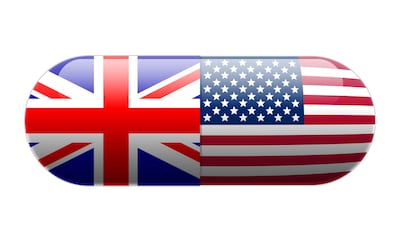United Kingdom
Improving patient recruitment speed will determine the future of the UK’s clinical trials landscape, experts argued at a webinar on the next steps for clinical research in the country.
External reference pricing is one of several drug pricing control measures used by a number of countries to contain drugs prices.
The UK-US trade deal offers the “the most encouraging signs the industry has seen for many years,” but UK companies had little influence over it and details are still scarce, according to one industry expert.
A key UK database of new medicines in drug company pipelines is being updated to future-proof horizon scanning in the UK and include vaccines.
If the EU’s controversial Artificial Intelligence Act applies restrictive rules to pharmaceutical research and development activities, the UK could benefit from offering a more favorable regulatory environment, top lawyer Stephen Reese explains.
The UK MHRA says it is ready to deliver the new Clinical Trials Regulation, which aims to balance faster review of trial applications with greater flexibility to deliver a competitive, innovation-friendly clinical research ecosystem.
As Europe races to reclaim its share of commercial clinical trial activity, regulators are testing whether faster approvals and shorter setup timelines will be enough to restore sponsor confidence, attract biotech investment, and secure the region’s place in global drug development.
It is “integral” that a planned increase in genomic testing supports access to treatments such as advanced therapies, says England’s chief scientific officer. Blood cancer and rare diseases are among the conditions expected to benefit from the country’s testing push.
The European Medicines Agency has not “always fared favorably” compared to other countries such as the US when it comes to drug approval timelines, but the reform of the EU pharma legislation is a key opportunity to “think out of the box,” says the agency’s head of therapeutics areas.
England’s health technology assessment institute, NICE, is soon to increase the thresholds used to evaluate the cost-effectiveness of new medicines – a lawyer cautions that even with the uplift, some new drugs may still struggle to secure reimbursement in the region.
Pink Sheet research has shown significant underspending on England’s Innovative Medicines Fund and a lack of transparency surrounding public reporting on the fund.
The UK’s latest economic budget, which will enter into force this April, offers “nothing” to support the government’s claim that it is making it easier for startups to launch, scale and remain in the UK, a biotech founder and lawyer argues.
Products likely to be subject to evidence generation agreements under England’s Innovative Medicines Fund are those that are costly and which serve a low number of patients. Orphan drugs appear most likely to receive interim funding through the IMF.
The UK health care products regulatory agency is inviting industry to share its views on how artificial intelligence in health care should be regulated, with input set to shape future rules and guidance.
The health technology assessment institute said its recommendation for the multiple sclerosis drugs, Tysabri and Tyruko, highlighted its continued efforts to drive the adoption of biosimilars across the National Health Service.
The UK MHRA has become the first major regulator to ask clinical trial sponsors to provide details on their use of artificial intelligence and machine learning as part of preparations for good clinical practice inspections.
Alternatives to animal testing can replace lengthy, resource-intensive studies for drug developers, helping to lower costs for companies, but a lack of regulatory global alignment can be a barrier to reducing animal testing, an expert says.
The UK’s roadmap for reducing animal testing is a positive starting point, but greater transparency from the drug regulator and a more detailed workplan from government will be required to make the plans a reality, an expert from Cruelty Free International says.
Deputy chief Jonathan Benger moves up to become NICE’s fourth-ever CEO. While the face may be familiar, the challenges are anything but as the HTA body has launched a new joint scientific advice process with the MHRA and will implement new cost-effectiveness thresholds driven by a US trade deal.
Flagship Pioneering is first partner in initiative aimed at giving drug developers early, informal, joint advice to fast-track the ‘most promising’ health care innovations. Pathway builds on an artificial intelligence collaboration between the UK MHRA and Singapore’s Health Sciences Authority.



















